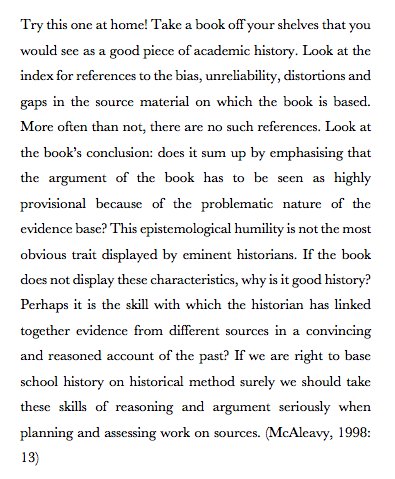
Head of School at Thetford Academy in Norfolk. I Tweet about history, education and philosophy.
How to get URL link on X (Twitter) App

https://twitter.com/apf102/status/1360258157302398978...teaching my Y12s yesterday about how Soviet research into nuclear technology rapidly developed following the American bomb. See also the space race, climate change or improving battery storage power. Disciplines are there to answer questions about the world, and as the...


 As someone who is keen to do some work with pupils at some point on cathedral building, the example from Lalibela in Ethiopia is particularly useful. The manuscripts and art work produced in medieval Ethiopia might also provide a good way in for pupils.
As someone who is keen to do some work with pupils at some point on cathedral building, the example from Lalibela in Ethiopia is particularly useful. The manuscripts and art work produced in medieval Ethiopia might also provide a good way in for pupils.

 We start up in Torridon in the summer of 2010. I was still fairly early on in the Munros at this point - currently on 202, and need to get back up to the Northern Highlands.
We start up in Torridon in the summer of 2010. I was still fairly early on in the Munros at this point - currently on 202, and need to get back up to the Northern Highlands. 

 So I had a go this evening, not with a book off the shelf, but by picking the first article from most recent edition of the English Historical Review. Quite an interesting piece on Cardinal Beaufort. It's packed full of fascinating analysis of the sources. Take this passage:
So I had a go this evening, not with a book off the shelf, but by picking the first article from most recent edition of the English Historical Review. Quite an interesting piece on Cardinal Beaufort. It's packed full of fascinating analysis of the sources. Take this passage: 